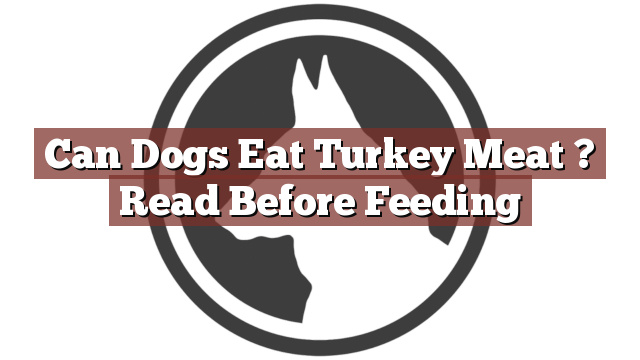Understanding Your Dog’s Dietary Needs
As a responsible pet owner, it is crucial to understand your dog’s dietary needs to ensure their overall health and well-being. While dogs are primarily carnivorous, their diet should consist of a balanced mix of protein, carbohydrates, fats, vitamins, and minerals. It is important to provide them with a diet that meets their nutritional requirements.
Can Dogs Eat Turkey Meat? Read Before Feeding
One common question that dog owners often ask is, "Can dogs eat turkey meat?" The answer to this question is yes, dogs can eat turkey meat. Turkey is a lean source of protein that provides essential amino acids necessary for your dog’s muscle development and repair. It is also a good source of vitamins B6 and B12, niacin, and selenium, which contribute to your dog’s overall health.
However, it is important to note that dogs should only consume cooked turkey meat. Raw or undercooked turkey can be harmful to dogs as it may contain bacteria like Salmonella, which can lead to digestive issues and food poisoning. Therefore, always ensure that the turkey is fully cooked before feeding it to your furry friend.
Pros and Cons of Feeding Turkey Meat to Dogs
Feeding turkey meat to dogs has its advantages and disadvantages. Let’s take a closer look at the pros and cons:
Pros:
-
High-quality protein: Turkey meat is a lean protein source that can help support your dog’s muscle development and repair.
-
Vitamins and minerals: Turkey meat contains vitamins B6 and B12, niacin, and selenium, which are essential for your dog’s overall health.
-
Low in fat: Compared to other meats, turkey is relatively low in fat, making it a healthier option for dogs prone to weight gain.
Cons:
-
Bones: Avoid feeding your dog turkey bones as they can splinter and cause choking hazards or internal injuries.
-
Seasonings and additives: If you plan to feed your dog leftover turkey, make sure it is plain, without any seasonings, spices, or additives that may be harmful to your pet.
In Conclusion: Make an Informed Decision for Your Dog’s Health
In conclusion, dogs can eat turkey meat, but it should only be cooked and served without bones or any harmful seasonings. Turkey can be a nutritious addition to your dog’s diet, providing high-quality protein and essential vitamins and minerals. However, always consult with your veterinarian before introducing any new food to your dog’s diet, especially if they have any specific dietary requirements or health conditions. By making an informed decision, you can ensure your dog’s health and well-being.
Thank you for taking the time to read through our exploration of [page_title]. As every dog lover knows, our furry friends have unique dietary needs and responses, often varying from one canine to another. This is why it's paramount to approach any changes in their diet with caution and knowledge.
Before introducing any new treats or making alterations to your dog's diet based on our insights, it's crucial to consult with a veterinarian about [page_title]. Their expertise ensures that the choices you make are well-suited to your particular pet's health and well-being.
Even seemingly harmless foods can sometimes lead to allergic reactions or digestive issues, which is why monitoring your dog after introducing any new food item is essential.
The content provided here on [page_title] is crafted with care, thorough research, and a genuine love for dogs. Nevertheless, it serves as a general guideline and should not be considered a substitute for professional veterinary advice.
Always prioritize the expert insights of your veterinarian, and remember that the health and happiness of your furry companion come first.
May your journey with your pet continue to be filled with joy, love, and safe culinary adventures. Happy reading, and even happier snacking for your canine friend!

